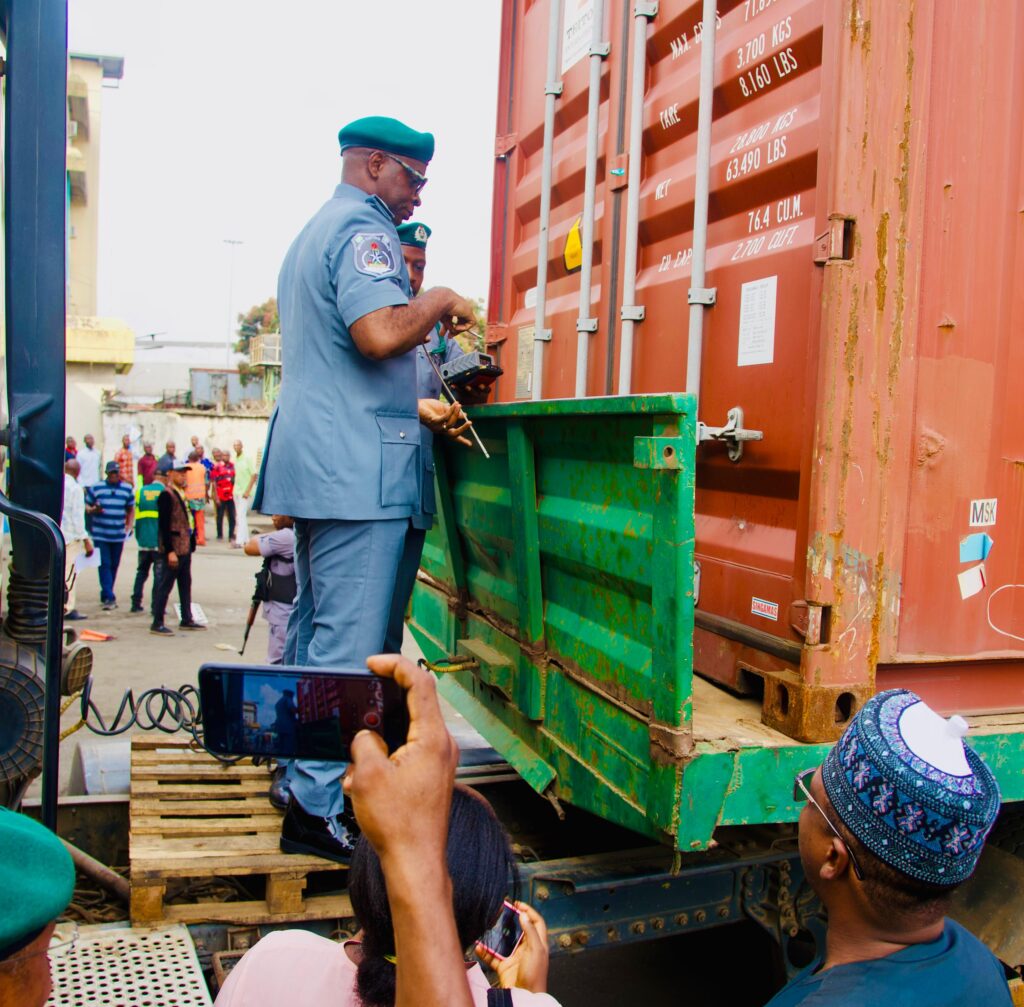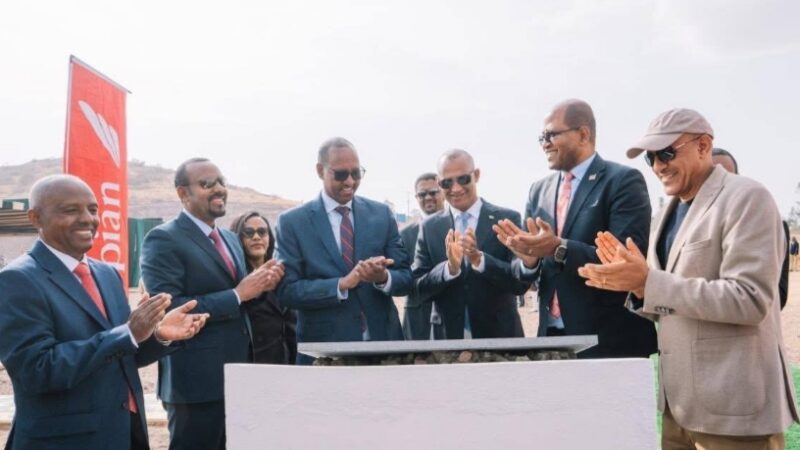Apapa Customs Unveils Electronic Cargo Tracking System to Strengthen Security, Facilitate Trade

The Apapa Area Command of the Nigeria Customs Service (NCS) has taken a major step towards strengthening national security and modernising cargo movement across the country with the introduction of the Electronic Cargo Tracking System (ECTS).
The newly launched digital system is designed to boost revenue collection, prevent cargo diversion, and enhance real-time monitoring from port of origin to final destination.
The pilot deployment was carried out on Wednesday, 5th November 2025, using a container destined for the Kano/Jigawa Area Command, officially marking the first real-time field execution of the new technology within the Nigerian Customs operational structure.
Speaking at the launch event inside the Apapa Port, the Customs Area Controller (CAC), Comptroller Emmanuel Oshoba, described the ECTS as a long-awaited breakthrough and a strategic innovation that will transform the movement of goods within Nigeria’s trade ecosystem.

According to him, the system employs digital seals and handheld devices to track containers in transit, eliminating the risks associated with manual cargo escorting.
He said the tool delivers transparency and improved visibility of cargo movement at every stage, curbing tampering, illegal diversion, and other forms of economic sabotage.
“Apapa Command is serving as the pilot stage for the nationwide rollout of this innovation. With this system, physical escorts will gradually phase out because officers can now monitor cargo movement electronically in real-time,” Oshoba stated.
He commended the Comptroller General of Customs, Bashir Adewale Adeniyi, for driving progressive reforms in Customs operations and championing innovation that aligns Nigeria with international standards.
Oshoba noted that ECTS is already in use in other countries, and as Chairperson of the World Customs Organisation (WCO), CGC Adeniyi has ensured Nigeria is not left behind in adopting cutting-edge customs technology.

Also speaking, the Deputy Comptroller in charge of B’Odogwu Implementation, Aondona Christopher Fanyam, explained that containers under the ECTS remain sealed until authorised personnel at the destination approve opening.
He disclosed that the system provides three distinct unlocking methods: a remote command from the central control office, a verified handheld device such as a mobile phone operated by trained officers, or a physical unlocking card used strictly at the endpoint.
“These multiple layers of authorisation ensure that no cargo can be tampered with or diverted. Only designated officers with the correct access can initiate unlocking,” he said.
On the training programme for officers, Chief Superintendent of Customs and Team Lead for the training unit, Rosemary Ebele Wenceslas, revealed that 12 officers have been trained for the pilot.
The officers were drawn from the Rapid Response Unit of the Federal Operations Unit Zone A (Ikeja) and the Apapa Enforcement Team.

She confirmed that they have undergone intensive training and now possess adequate knowledge to operate the technology professionally. Standard Operating Procedures (SOPs) have also been communicated to ensure seamless implementation.
“With the capacities we have built, these officers are fully ready to deploy and operate the system effectively. The pilot phase will demonstrate the full value of this innovation in enhancing trade facilitation, security, and revenue protection,” she said.
The new ECTS is widely expected to help the NCS curb revenue leakages, enforce stronger security compliance, and accelerate Nigeria’s transition into a digitally driven port management environment.







